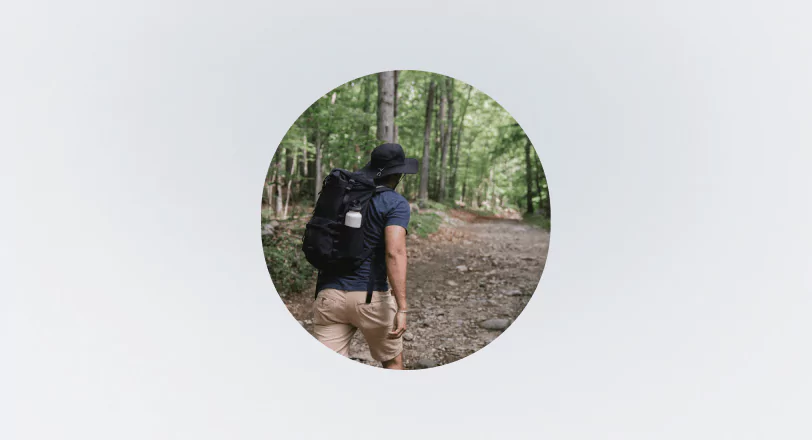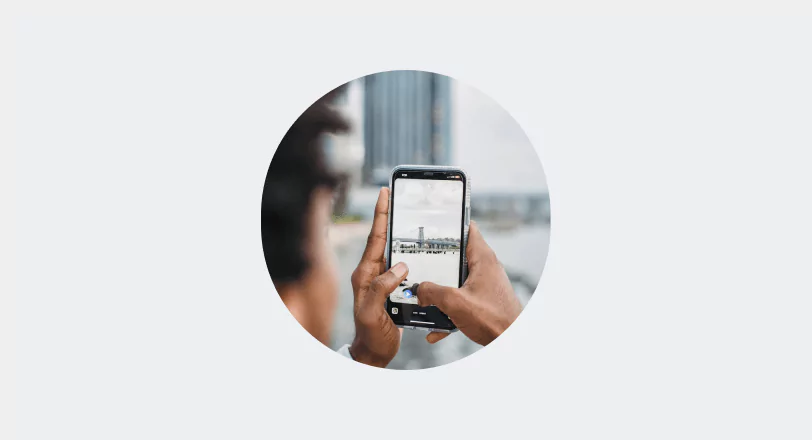Have you been looking for ways to reach more travelers and fill those extra seats on your tours?
Building strategic partnerships might be the answer. Travel partnerships can bring a steady stream of new customers. They put your tour brand in front of people who are already excited to explore new places. And the best part? You don’t have to go it alone.
In this article, you’ll learn five partnership strategies to help you reach more people. These easy to set-up tactics can improve your offerings and help you stand out in a fierce market. As a result, you can increase bookings and improve your tour brand's reputation.
Why Travel Partnerships are Important for Tours and Activities
Travel partnerships are essential. They put your tours in front of people who are already interested in local experiences.
For example, a traveler checks into a hotel and learns about your nearby eco-tour. This taps into their excitement to explore.
This strategy makes it easier for them to book your tour, turning casual interest into real sales.
Let’s look at some of the biggest benefits of travel partnerships.
1. Creates Unforgettable Combined Experiences for your Customers
Partnerships let you combine your tours with other services to enhance the customer experience. For example, adding a brunch stop at a local café to a cycling tour can make it a more memorable adventure.
2. Lets You Access New Customer Bases
Partnering with well-known businesses like hotels or local attractions helps you reach new audiences. These customers already trust your partners, which boosts your credibility. This expands your reach without the need for extensive marketing efforts.
3. Boosts Your Tour Brand’s Credibility and Visibility
Recommendations from well-regarded businesses can lift up your brand’s credibility. When a trusted hotel or popular blogger promotes your tours, it builds trust. New customers feel more confident booking with you.
4. Helps You Stand Out from the Competition
Offer unique bundles that competitors don’t have. Think of exclusive evening tours or special packages. These unique options can make your service the top choice for travelers seeking something different.
READ MORE: How Much Do Travel Agents Make? A Guide for Tour and Activity Operators
5 Travel Partnerships Strategies for Tour and Activity Operators
1. Cross-promotions with Local Businesses
Cross-promotions are one of the easiest and most effective strategies for tour operators.
When you team up with nearby businesses like hotels, restaurants, and cafes, you build a supportive network. Each business helps promote the other.
The idea is simple: you and your partner promote each other’s services, attracting new customers without extra advertising costs.

How Cross-Promotions Work
Cross-promotions work best with businesses that attract travelers likely to enjoy your tours.
For example, if you run a food tour, partnering with a popular local restaurant is a natural fit. The restaurant can mention your tour to guests, and you can suggest their restaurant as a perfect way to end a tour. This mutual promotion expands your reach by introducing your tours to people who are already thinking of exploring.
What are the Benefits of Cross-Promotions?
- You reach new customers through trusted partners. This adds credibility to your tours with “word-of-mouth” referrals.
- Cross-promotions are cost-effective. It needs little to no budget and uses the power of local connections.
How Can I Get Started with Cross-Promotions?
To begin, identify a few businesses that align with your tours. Reach out to discuss ways to promote each other, such as:
- Displaying brochures, business cards, or a small sign about your tour in their business.
- Creating a joint discount, where customers get a special rate when they book both services.
- Sharing each other’s information on social media or in email newsletters.
These small steps can make a big impact by attracting new, local customers to your tours.
2. Bundled Deals with Complementary Tour Operators
Bundling your tours with other activities creates a complete experience. This approach helps attract more customers.
This works best when you partner with operators whose services add to yours without competing. Combining experiences makes it easier for travelers to enjoy their trip with less planning.

How Bundled Deals Work for Tour Operators
Bundling is straightforward: you and another tour operator agree to offer your services as a package. For example, if you run a city bike tour, partnering with a sunset cruise operator can provide an ideal “day-to-night” package for visitors. Customers can enjoy the highlights of the city by day and unwind on the water in the evening—all in one convenient booking.
What are the Benefits of Bundled Deals?
- Added value for customers by offering a complete experience.
- Simpler booking process, as customers can book multiple activities in one go.
- Encourages more bookings for both partners involved in the bundle.
- Increases the perceived value of your tours by creating exclusive, hard-to-find packages.
How to Get Started with Bundling Deals?
Identify tour operators who complement your offerings. Then, approach them with ideas to collaborate, such as:
- Create special packages that combine your tours, with each partner handling their booking portion.
- Offer discounted rates for customers who book the bundle, making it a more attractive option.
- Feature each other’s tours on your websites or social media. This way, customers see the bundle as a seamless, exclusive experience.
Bundling creates a richer experience that benefits your customers. It also boosts revenue for both businesses. Get 5 group pricing examples for tour operators.
3. Influencer Partnerships
Partnering with influencers is a powerful way to spread the word about your tours. Influencers have many followers who trust them. They can share your experiences in a natural, relatable way. This introduces your brand to new customers who trust their recommendations. This makes influencer partnerships a great way to boost bookings and build trust.

How Influencer Partnerships Work
Start influencer partnerships by inviting influencers to try your tour for free or at a discount. In return, they share social media posts, stories, or blog features about your tour. These posts can show the tour in real-time or can be part of their travel tips.
For example, a local travel influencer might share their experience on your guided nature hike, showing followers how fun and unique it is.
What are the Benefits of Influencer Partnerships for Tour Operators?
- Increases brand visibility by reaching the influencer’s audience.
- Builds trust, as followers see the influencer’s endorsement as genuine.
- Provides high-quality content (photos, videos, posts) that you can share on your own channels.
- Boosts your social media presence with fresh, engaging content.
How to Get Started with Influencer Partnerships?
Start by finding local influencers in travel, lifestyle, or adventure who fit your brand. Make sure their followers are similar to your target audience. Then, reach out and discuss a partnership. Here are a few ideas to start:
- Offer a complimentary tour or an exclusive discount in exchange for a review on their platforms.
- Create a joint giveaway, where followers can win a free tour, increasing both engagement and awareness.
- Invite influencers to “take over” your social media for a day, sharing their live experience on your channels.
These influencer partnerships can build lasting relationships with influencers who truly love your brand. They also attract new customers who trust the influencers’ recommendations.
4. Online Travel Agency (OTA) Partnerships
Online Travel Agencies (OTAs) like Viator, GetYourGuide, and Expedia connect travelers with tours and activities worldwide. Partnering with OTAs can boost your tour’s visibility to a huge audience, especially those who plan and book online. It’s a great way to reach more people without a big advertising budget.

How OTA Partnerships Work
When you partner with an OTA, you list your tours on their platform, reaching a global audience. Travelers can book your tours directly through the OTA’s website or app. You pay a commission for each booking, and in return, you benefit from the OTA’s wide marketing reach.
What are the Benefits of OTA Partnerships?
- Provides instant exposure to a large audience of potential customers.
- Manages marketing and customer service, allowing you to focus on the tour experience.
- Increases bookings and brand awareness, helping you grow your business.
- Offsets commission fees with expanded reach and potential for more sales.
How to Get Started with OTAs?
To begin, choose an OTA that aligns with your type of tour and target audience. Each OTA has its guidelines, but generally, you’ll follow these steps:
- Register as a supplier and set up your profile. Use clear descriptions and high-quality photos to make it attractive.
- Set competitive prices that include the OTA’s commission. Make sure your prices are still profitable.
- Monitor bookings and respond to reviews on the platform. This helps build a positive reputation and improve your ranking in search results.
Partnering with an OTA can open new booking channels and expand your brand’s reach worldwide. It’s especially useful for attracting travelers from specific regions.
NOTE FOR TOUR OPERATORS: However, it’s generally not recommended to rely solely on OTAs for sales. One major reason is that they can take up to 25% of each sale. While OTA partnerships are useful for filling empty spots, they shouldn’t be your primary marketing channel. Learn more about strategically using OTAs to enhance your tour marketing.
5. Partnering with Non-Competing Tour Companies in Other Locations
A unique way to get new customers is by partnering with tour companies in other locations. Partnering with operators outside your area helps you build a referral network. This strategy works well in popular travel spots or areas with nearby destinations. It’s also ideal for cities within the same country or in neighboring countries.
How This Partnership Works
These partnerships focus on referring customers who travel from one destination to the next. For example, a tour operator in San Francisco could partner with one in Los Angeles. When guests finish a tour in San Francisco, they’re recommended the Los Angeles tour company for their next stop. This creates a seamless journey for travelers and adds value to their overall trip.
What are the Benefits of Partnering with Tour Operators in Other Locations?
- Expands your reach to customers eager to explore more destinations.
- Generates direct referrals and builds repeat customer loyalty.
- Establishes a network of trusted partners, adding credibility to your brand.
- Positions your tours as part of a larger, seamless travel experience.
How to Get Started with Location-Based Partnerships?
Identify operators in key destinations your customers may visit. Reach out to discuss a mutual referral arrangement. Here are a few simple steps to get started:
- Offer a referral discount for customers going to the partner location. This gives them an incentive to book both tours.
- Share each other’s brochures or flyers. This helps customers know about the partnered tour when they’re ready to book.
- Add links to each other’s websites in your booking confirmation emails. This helps customers plan their next adventure.
Location-based partnerships add value by creating a seamless travel experience for customers. They also help drive bookings for both companies.
Travel Partnerships Need to Be Mutually Beneficial—Have a Strategy
For any travel business partnership to succeed, it must be mutually beneficial. Both partners should bring something to the table. For example: access to new clients, added credibility, or unique services.
If you need guidance in forming strategic business partnerships, consider working with a travel management consulting firm like Partnership Travel Consulting. They don’t provide travel agency services, but their management team of experts helps travel companies manage and improve partnerships. This ensures every collaboration enhances the customer experience and supports growth. [Get travel management consulting firm services here]
Conclusion
Travel partnerships help grow your tour business by reaching new customers and adding value to your experiences. Building relationships with local businesses and other tour operators helps attract more travelers. Working with influencers and OTAs also expands your reach to new audiences. Partnering with non-competing operators in other locations can boost bookings. These marketing techniques help you grow without the high marketing costs.
Ready to take the next step? Start with one of these partnership ideas. See how it impacts your bookings and brand awareness. To further enhance your operations, consider using a booking system like TicketingHub. It helps manage partnerships and streamlines your customers’ booking journey.

FAQ
Q: Why are partnerships essential in the travel industry?
- Expand reach to new client bases and enhance travel services.
- Leverage resources and expertise from travel industry veterans.
- Build mutually beneficial partnerships that support success and boost revenue.
Q: What types of potential partners should travel brands consider?
Travel brands should seek partners with complementary services, such as:
- Hotels, airlines, local cafes, and restaurants
- Travel management consulting firms and travel agencies
- Other tour operators providing unique experiences
Q: How do partnerships help travel businesses succeed financially?
- Share marketing costs and gain access to new client communities.
- Drive revenue through combined packages and cross-promotions.
- Increase bookings by providing a full travel experience.
Q: What is the process for setting up a successful partnership in the tourism industry?
To establish a partnership:
- Look for travel businesses or management teams that align with your goals.
- Outline mutual objectives and define roles clearly.
- Create joint offers, referral programs, or package deals. This adds value to each partner’s services.
Q: Why is it important for travel businesses to partner with multiple industries?
- Provides clients with a complete travel experience.
- Increases brand value by partnering with airlines and corporate travel agencies.
- Simplifies travel for clients by offering comprehensive services on one platform.
Q: How can small travel businesses benefit from partnerships?
- Reach larger audiences by partnering with travel industry veterans. Collaborate with global travel management firms to expand even further.
- Enhance service offerings without increasing costs significantly.
- Increase visibility and bookings by forming partnerships with travel consulting experts. Collaborate with larger travel agency services for even greater mutual benefits.





